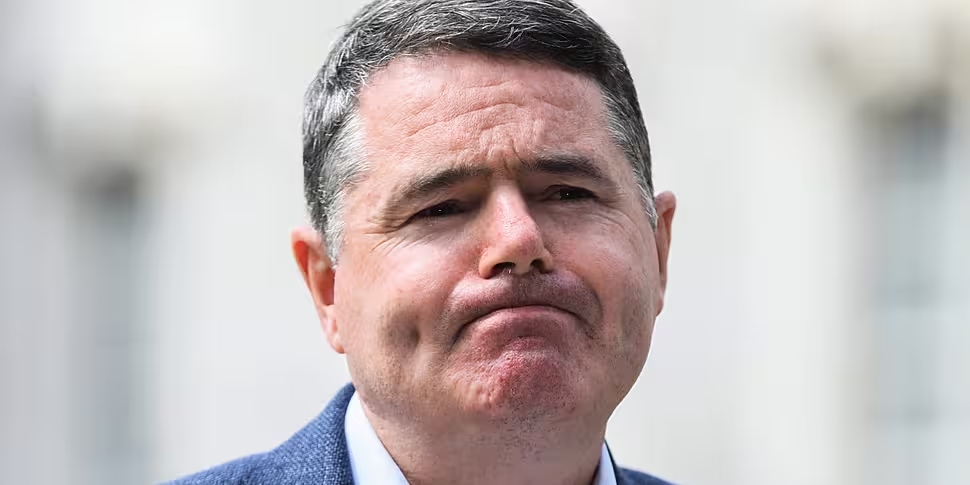The Finance Minister has insisted he ‘never said the Universal Social Charge was a temporary measure’.
When the charge was introduced in 2011, the then-Government assured the public that it was a temporary measure needed to respond the economic crisis.
The charge replaced both the income levy and the health levy and is payable on income above €13,000 per year.
The charge currently brings in about €4.4bn per year for the Exchequer.
On Newstalk Breakfast this morning, Finance Minister Paschal Donohoe insisted that he has never said the charge was temporary.
“That is never a point I have made,” he said.
“If you look at the USC, the USC involved the integration of two levies - the health and income levy - which were longstanding parts of our personal tax code at that point.
“I have never indicated otherwise.”
5 years ago, 1000s paid their #1st USC under #fiannafail. @finegael will abolish USC over the lifetime of the next Government #ffardfheis
— Leo Varadkar (@LeoVaradkar) January 16, 2016
During the 2016 election, Fine Gael promised to abolish the USC – a promise it failed to deliver upon when it was returned to government by the electorate.
The Fianna Fáil leader Micheál Martin was one of many politicians to criticise the party for making “false promises,” claiming Fine Gael always knew the pledge was not affordable.
Permanent
Asked whether he was now saying the charge was permanent, he insisted his position has remained the same throughout his time in Government.
“I never said it was temporary,” he said. “I am not saying ‘now’ it is permanent, I have always said that to remove the USC, particularly since I became Minister for Finance with what happened with Brexit and where we are now with COVID, isn’t a feasible prospect.
“What we can do is we can reduce the amount of income which are paying the higher rates of USC and the higher rates of personal tax. My own party and Government are committed to doing that.
“At this moment in time, to be indicating that we can abolish USC with where we are - particularly with COVID - is not a claim I believe you can make, let alone implement.”
We will abolish the USC. This will keep the recovery going and ensure that work pays. #GE16 pic.twitter.com/xNtyRfK5Gn
— Fine Gael (@FineGael) February 7, 2016
He said anyone suggesting the USC can be abolished “needs to explain how we will find the many billions it collects every year” – particularly with a national debt of €234bn.
“We need to be careful that Government doesn’t do things that ultimately it can’t afford,” he said.
“Massive unfunded changes in how we tax at the moment will create problems for us that we will all be dealing with in a year of two. I am trying to get that balance right.”
Cost-of-living
Minister Donohoe was speaking after the Government announced a €300m package to ease the cost-of-living crisis facing families.
The package, announced last night, includes a €200 energy grant for every home in the country, which is likely to be paid in April.
Everyone in receipt of the fuel allowance will also get a one-off €125 lump sum in or around St Patrick’s Day.
It takes the total spend on easing the cost-of-living crisis to around €1.3bn when the €1bn announced in October’s budget is included.
Minister Donohoe said that, while the package has one major universal element, the majority of the measures are aimed at helping those that need it the most.
He said loading the measures towards those in receipt of social welfare would have meant people on low wages were left with no supports.
“I do accept there will be a number of people – a minority – who will receive this payment who may feel that they are seeing their wages grow and may feel they don’t need it as much as others,” he said. “But there will be many for whom that will not be the case.”
“There will be many for whom this €200, in the context of the rising price of home oil, will be of real help.
“The strength of our social welfare system is that it is geared towards people who are either not in work or in work with a low level of income but if you are earning just a little bit more our social welfare system is not designed to support you in that way.”
He said the 20% reduction in public transport fees is a “really significant measure” and insisted a 50% reduction would not have been affordable.









